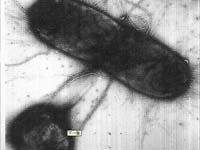
自然界中的基因有千万种,哪类基因最为常见和最为丰富?由美国南佛罗里达州立大学、圣迭戈州立大学和芝加哥大学科学家组成的研究小组在对大量基因组进行成功解码后找到了答案,那就是有“自私DNA(脱氧核糖核酸)”之称的转座子。转座子基因的丰度和广度表明,它们在进化和生物多样性的保持中发挥了至关重要的作用。
转座子因其独特的行为在科学界获得了诸多“名号”。目前仅知的功能就是到处传播自己,故有人昵称其“自私基因”;根据转座子可在生物体内或生物体之间移动,并产生不断变化的遗传物质的特性,也有人将其叫做“跳跃基因”。南佛罗里达州立大学海洋科学学院研究员米亚布赖特巴特称,转座子还有个称呼叫“剪贴基因”,它们能持续地改变和移动,有时甚至还能将其他基因一起带来。
此项发表在最新一期《核酸研究》Nucleic Acids Research上的发现之所以引起广泛关注,不仅是因其给这些常见的DNA片段带来了新的认识,还在于科学家们在该项目中所进行的大规模的计算。该项目由圣迭戈州立大学牵头,使用了阿贡国家实验室的一台目前世界上最快的计算机用于测序分析。研究小组对数千种细菌、古细菌、真核和病毒的基因组序列以及数千种环境群落宏基因组中的蛋白编码基因和基因标签进行了分析。
布赖特巴特说,科学家们常在研究项目中使用转座子基因来进行各种实验,以对研究的生物体内的基因实施变异、破坏或是敲除等。但转座子也能带来新的功能,并创造出生物体内的多样性。研究人员表示,转座子基因在基因组中是如此的无所不在,以至于它们常常被忽略。它们能从一个地方迁移到另一个地方,引发出通常而言是有害的变异和重组,但偶尔其也能帮助生物体存活。
生物学教科书一般认为在光合作用中能固定二氧化碳的酶是地球上最为丰富的酶,也据此推测能对这种酶进行编码的基因也应当是最丰富的。共同研究者之一、开罗大学的拉米阿齐兹表示,科学家们都会期待那些重要的基因会出现在自然界最丰富基因榜的前列,不过研究却发现,被某些科学家称为“垃圾DNA”的转座子反倒统治着已知基因世界。
不过,转座子基因在整个自然界中并非均匀分布,有些基因组中有许多转座子基因,而另一些基因组中则缺失转座子基因。布赖特巴特表示,科学家们才刚刚开始理解转座子在环境中的存在和作用,这些极其成功的基因正到处扩散其DNA,制作大量的副本并侵入所有类型的生命体。
在此前的研究中,已知转座子在人类基因组中占据40%的份额,不过从没有在不同生态系统中对其进行综合评估。阿齐兹表示,现在人们终于知道,在截至目前所采样的几乎每个生态系统中都有大量的此类基因存在,这些基因加速了变异和多元化的进程,从而驱动了不同生物体的进化。
生物谷推荐原文出处:
Nucleic Acids Research doi:10.1093/nar/gkq140
Transposases are the most abundant, most ubiquitous genes in nature
Ramy K. Aziz1,2,*, Mya Breitbart3 and Robert A. Edwards4,5
1Computation Institute, University of Chicago, Chicago, IL 60637, USA, 2Department of Microbiology and Immunology, Faculty of Pharmacy, Cairo University, 11562 Cairo, Egypt, 3College of Marine Science, University of South Florida, 4Department of Computer Science, San Diego State University, San Diego, CA 92182 and 5Mathematics and Computer Science Division, Argonne National Laboratory, Argonne, IL 60439, USA
Genes, like organisms, struggle for existence, and the most successful genes persist and widely disseminate in nature. The unbiased determination of the most successful genes requires access to sequence data from a wide range of phylogenetic taxa and ecosystems, which has finally become achievable thanks to the deluge of genomic and metagenomic sequences. Here, we analyzed 10 million protein-encoding genes and gene tags in sequenced bacterial, archaeal, eukaryotic and viral genomes and metagenomes, and our analysis demonstrates that genes encoding transposases are the most prevalent genes in nature. The finding that these genes, classically considered as selfish genes, outnumber essential or housekeeping genes suggests that they offer selective advantage to the genomes and ecosystems they inhabit, a hypothesis in agreement with an emerging body of literature. Their mobile nature not only promotes dissemination of transposable elements within and between genomes but also leads to mutations and rearrangements that can accelerate biological diversification and―consequently―evolution. By securing their own replication and dissemination, transposases guarantee to thrive so long as nucleic acid-based life forms exist.







